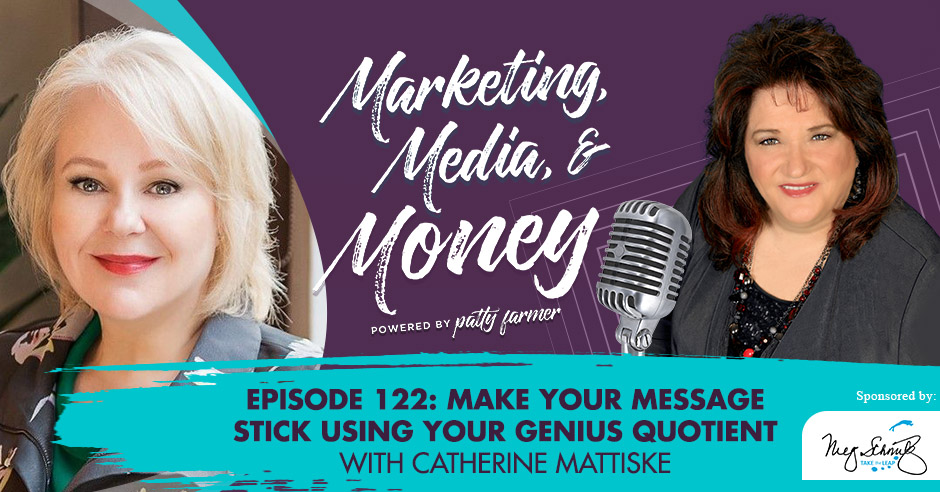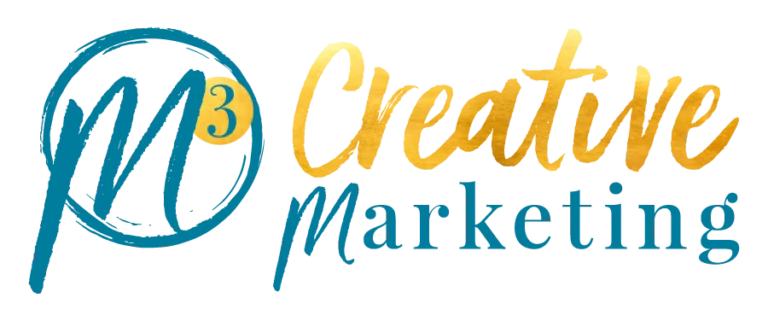
Click on the icon to listen to this episode on your favorite podcast platform.
We're all different. Every human brain is different. If we know how we prefer to learn, we get into that sweet spot called the genius zone and everyone's got it. Share on X
When you start the meeting in your team, get everybody involved in something. Share on X
When we're stressed, we come out of our genius zone and we're going to go into a different one when you feel like you can’t function anymore. Share on X
Listen to your language, listen to your life. Share on X
Catherine's Gift: Free Communication Style Assessment
Catherine's #1 Marketing, Media & Money Strategy
DID YOU LIKE THIS EPISODE? PLEASE GIVE IT A RATING AND REVIEW
About Catherine Mattiske

Important Links
- Website
- Twitter - Inner Genius Now
- LinkedIn – Catherine Mattiske
- Instagram - Inner Genius Now
- Unlock Inner Genius: Power Your Path to Extraordinary Success
- First 60 pages of the book
- Free Marketing, Media, & Money Assessment
- Check Out Our Sponsor
- Leap Franchise Consulting
- ID9 Intelligent Design
- Miro
- Slack
- Trello
Grab Your Free Marketing, Media, & Money Assessment
Meet Our Sponsor
The Marketing, Media, & Money Podcast (and magazine) would like to thank our sponsor Meg Schmitz, founder of Take the Leap franchise consulting company.
The franchise industry is booming as people look to diversify their income streams with essential businesses, without having to quit their day job. If you have ever considered what it would be like to own your own business with the security of a solid brand behind you, schedule a call with Meg. The conversation is free, and the insights are priceless. https://MegSchmitz.com
Make Your Message Stick Using Your Genius Quotient With Catherine Mattiske
I'm looking forward to sharing our industry expert with you. In this episode, we are going to be talking about something that is pretty interesting. You want to make sure that you get your pen and paper out because you're going to want to take some notes. Our guest is going to give you some real nuggets. What we're going to be talking about is this question. “Why do people never reach their full potential to connect and influence others?”
It's a great question. We're going to get some good answers. Let me tell you a little bit about our guest who is here from Australia. I'm excited to have her. Let me tell you a little bit about her. Catherine Mattiske, best-known for inventing ID9 Intelligent Design and The Genius Quotient is a leading light in the corporate learning and team building industry.
She regularly works with large and small organizations to help team members better understand one another while effectively collaborating and boosting individual and team morale and productivity in the workplace. She's a woman of many words with a strong belief in the value behind unlocking our learning and communication preferences to connect better while becoming the most powerful version of ourselves. She has published 31 books, including a 27-part short series and her latest book Unlock Inner Genius: Power Your Path to Extraordinary Success. I'm excited to have her. Thank you so much, Catherine, for being here with me.
It's great to be with you.
I appreciate you getting up so early to be here with us. I don't know if you're one of those people who wake up, have a cup of coffee, and you're good to go. I hope so because we're going to dive right in. Let's do it. I believe that no matter what anyone does, we don't all like turn twenty and all of a sudden, we know what our career paths are going to be.
We don't know our purpose and what we're passionate about. We don't even know what our comfort zone is at that point, usually or how to step out of it, or how to communicate like we're going to learn about here. Why don't we start a little bit by having you share, what was you’re a-ha moment? Tell us a little bit about your story and how you got to where you are now.
My a-ha moment started when I was doing computer training, which seems like 100 years ago now. It was a long time ago before I started my business. I've had my business for many years. I realized when I was training that there were some people that got it. My message was landing on those people. They could do it, execute their computer stuff that I was teaching. They got it. They hooked it.
Other people would glaze over and I wasn't reaching them. I started to think, “What am I doing with these people that get it? What am I not doing with the people that aren’t?” That set me on a complete trajectory into studying how people learn, what makes the language stick, and what makes people do things differently because of that. That's been my whole life's work.
It started way back when I started computer training. That was the beginning of Microsoft Word, Excel, and PowerPoint. That was me up the front training those people. People were scared because they had never seen anything like this before. They were going, “This is a fad. This is going to fade out.” Some people were on that bus and other people could not have cared less.
That's interesting because, for a long time, there have been assessments all around. We're all so interested in knowing what our IQ and EQ are. I like that you say it's time to know what our GQ, or Genius Quotient is. First of all, tell us, what is the Genius Quotient?
The Genius Quotient is a different type of assessment. It's a different type of profile. There's never been a profile that has told someone how they prefer to learn. What's the big deal about that? We're all different. Every human brain is different. If we know how we prefer to learn, we get into that sweet spot. I call that the Genius Zone and everyone's got it. Those people way back when in my computer courses that got it were in their genius zone.
I didn't know how I got them there in those days but they were there. The people that didn't get it were not in their genius zone. They might've been in their genius zone when they were playing with their kids or playing soccer. They might have been in their genius zone when they were painting their house or doing accounting work. Everyone's got a genius zone. I worked out how to get people into their genius. When you're there, it means that you connect better with people. You're communicating better.
What you're saying, what you're writing, and what you're presenting lands and people listen and do something different as a result. Ultimately, the game is influenced because if you're a professional speaker, an entrepreneur, a business owner, a manager, an admin assistant, a CEO, retired, a mother, a sports coach, whoever you are, the game of life is around communication, how you connect with other people, how you ultimately influence them, and how you're influenced.
That's interesting to me because when you boil it all down, it comes down to, “What is happening in someone's brain? How do they take information in and how do they process it?” Maybe I'm a slow learner. It took me many years to work this out. It took my whole career. I devise this profile but in ten minutes with a whole lot of algorithms and a whole lot of complex computer work, you can work out your preference of learning.
How do you take in information your way? How can you get into your genius zone? That's only half of it because then you say, “Everyone around me is different. My family is different from me. My friends are different. My colleagues are different. I'm an entrepreneur. I'm a professional speaker. I do this for a living. Is my message landing with people like me?” Probably. How do I flex that then? How do I change that language? How do I write differently, and present differently to make sure that I'm poking into everybody?” That's the trick.
Sometimes you're having a conversation as somebody who is a professional speaker, you're right. Sometimes you're like, “Wow.” You can see in people's eyes that it's landing so well. I also realize that in my company with the people that I work with, there have been times when you can tell that somebody is in their genius zone. There are times when you can so clearly see that they're not.
I learned a long time ago, although I didn't know about the Genius Quotient then, that because somebody wasn't working well in that particular position, didn't mean that they didn't have something to bring to the company. It was that they were in the wrong vehicle. Sometimes when you're able to move them into another place, all of a sudden, they shine. They're like, “This is where they were supposed to be.” I could see whether you are a company and have employees or are a CEO, freelancing, virtual, how important to know what someone's Genius Quotient is for a couple of reasons.
Not just so that they're happier because happier employees and you working with them are more productive. I would also see how much more productive they are working with each other. A lot of times, somebody does work and when they're done with their work, it goes to this person. Keeping all of that flow working well, so having people know that no matter how your flow is in your organization.
Would you say is it important for somebody to make sure that message is sticky? I love that. Would you say that it is something that no matter what type of organization you have, whether you're a huge organization, have a small team, or whether you freelance? Should people consider having the people that work with them take the Genius Quotient so that we know what their inner genius is?
Yes, because the insight into that gives you that edge. As an employer, let's say you're a manager or you've got a team. It doesn't matter if you're sitting inside a company of 100,000 people or 10. If you have got a team, you can map your team. There's a tool within the Inner Genius profile in the Genius Quotient to map out your team to say, “There are twelve archetypes in the Genius Quotient and who lands where?”

Genius Quotient: When you're in the genius zone, it means that you connect better with people. So you're communicating better. People listen and do something different as a result. Ultimately, the game is influenced.
There's another extra piece of it as well, which is called a power-up, which you can also know. That's how to get people into their sweet spot. If you met that table, you go, “I don't have a balanced team.” What immediately comes up is let's say you've got a team of people, perhaps like you, the visionaries, the people who are great at creating new ideas, dreaming up new things, and so on. A company made up of those people, maybe they're the archetype of a futurist. That's not very good because where's the practicality? Where's the efficiency? Where's the detail? Where's the big why?
You need to have that balance. You might say, “I'm hiring people like me,” which is the number one issue for people who are hiring. They fire people that are mirror images of themselves. You get lots of people the same. What you want to say is, “How do I get the ultimate diversity?” Forget about skin color, race, religion, gender, and sexual orientation. Forget about all that. Think about the diversity of how people show up every day and how they get into that genius zone.
If you can have a balanced team met, your company and your team are on fire. They're unstoppable because there's someone who loves the detail of a complex Excel spreadsheet. There's someone who will get in there, get their hands dirty, and they'll be the doer. There's someone who will sit back and go, “Why are we doing this? How do we ask those questions? How do we inquire more?” There's someone who's raised a shop full of innovation and so on. You get that balance. That's what I try and do in my team and then I do silly things.
As a leader, I ask people to do work that is completely opposite to their genius zone because that's what I do. When a job comes in and it has to be done, I go, “Can you do this?” instead of thinking, “That is the polar opposite of their genius zone.” They flounder, get stressed, get upset, don't do a great job, and they go, “This is hard.” It takes them forever.
I think to myself, “Catherine, you deserve that because they're now upset.” I'm upset. Everyone's upset because I've taken them out of their sweet spot. For all of the work that they do, I try and keep them in their genius zone. Is that possible all the time? No, but I try and keep them there. When I do that as a leader, it's unstoppable. That's what I try and do.
That makes a lot of sense though because a lot of times when you are hiring or you're talking about a project, whether you're working on a project with somebody or collaborating with somebody, we don't know. I know that sometimes I put people together. We'll say, “What do you like to do? What are you proficient at?” They'll sit here and they'll say, “I'm proficient at this and that,” and they're not. It's what they want to be proficient at.
What they don't realize sometimes is that if that's not your genius, that's okay because you do have a genius. Let's let you work on that. For me, it is super important. Not only are they happier but they're more productive for sure. Work gets done faster and more effectively. We're more productive as a whole, not just individually but all of us together. That works. Before we break down the archetypes because I want you to do that, I have a question first though.
Whether you are a CEO, entrepreneur, solopreneur, manager, or whatever the case may be, sometimes it's a lot easier to do things you’re in person. When my company was brick-and-mortar, it was a lot easier to create the culture and get everybody to work more fluidly. When we became virtual, all of a sudden, it wasn't as easy. I had to come up with different ways for us to do that. Now, because we do so much work on Zoom, how can a manager run a meeting and keep everyone engaged? Is that easier to do if you know their archetypes? You said there are 12 but what if there are 40 people on the call?
There are a few things that you can do immediately to get that engagement. The aim of the game is to hook everybody in. If you think about a meeting, how many times do people come to a meeting and say nothing? How many times do people show up, they're solid throughout the entire meeting, maybe they've got their camera off and they do what they're doing in the background then they log out of the meeting? Think about that.
Now think about an alternative to say, “What would it be like if I could get everybody engaged in every meeting?” I'm Australian, so we're very practical people. The first thing that I do is when I'm having a meeting with my team or anybody, I make sure that I'm first on the call. I might log into that meeting ten minutes before and as every team member joins, I ask this question, “How are you?” That question, instead of saying, “Hi, Patty. How are you?” You say, “I'm great.” If I say, “Patty, how are you?” You tell me how you are.
If you're the first one on the call, you tell me how you’re going. You told me your love story. Changing the intonation of the “How are you?” and meaning it, coming from a place of, “I want to connect with you and ask you how you are.” That's the first thing. I do that and I'm always the first on the call in the team meetings. It doesn't take any more time for me. I'm sitting at my desk anyway. I log into the Zoom call fifteen minutes before. Be first. It doesn't matter if the first person arrives 2 minutes before or 15 minutes before, I'm there and I'm up for a chat.
That's the first thing, around connecting with people. As every person joins the call, say hello. When people walk into a boardroom, you say hello. When people walk into your house, you say hello. When walking into Zoom, people get ignored. Why is that? Let's come back to the basic human condition. We like to be acknowledged.
The next thing is when you start the meeting, get everybody involved in something. I don't care if you're working with a remote team. I work with a global team of 50 people in my team. I'm always interested in the weather because now we are in the middle of winter. You're in the middle of summer. I'm freezing my butt off and you’re having beautiful sunny weather. I'm completely envious.
I say, “Put into chat what's your weather like now.” That gets everybody into chat. Get people engaged and say, “Here is an agenda.” Remember those basic things called agendas? “Here's what we're going to do. We're going to hear from Patty on this. We're going to hear from Mike on this. We're going to hear from Jose on this. We're going to hear from Sally on this or we're going to do this. Together, we're going to do all of these things all the way through.”
In other words, don't multitask. Don't drift off. This is the place you want to be. You don't want to be anywhere else. This is the best place that you can be in the next hour. Stay tuned, fast-paced. I also do things like power hour. I say, “We're going to have a 30-minute meeting but what takes us 30 minutes would normally be taken in an hour, so buckle up. We're going to do things double speed.” Instead of booking an hour on Zoom, which is easy, book a power hour. It's an hour's work in 30 minutes. All of a sudden, the pace and the energy elevates. Everyone's into it.
If you think about what you would do if you were running a workshop for an hour as opposed to a meeting for an hour, run your meetings like workshops, highly engaging, with outcomes, and activities. Let's get people onto Miro boards. Let's get them onto Slack. Let's get them onto Trello. These are the tools that I use every day. I should sell these things because I tell so many people about them. The best collaboration tool that I know is Miro. If you haven't used Miro, use Miro.
It's like a big giant whiteboard that everybody on the Zoom call is collaborating together, brainstorming, sorting out things, planning, and adding documents. It's great. I wish I'd invented it. It's brilliant. Using those collaboration tools goes back to my computer training days because I'm a nerd. I'm looking for new tools or ways to build that collaboration. I come back as a learning and development professional, as a trainer, as a speaker, I think about my meetings like I think about a training course.

Genius Quotient: Get the ultimate diversity. Forget about skin color, forget about race, religion, gender, sexual orientation. Think about the diversity of how people show up every day and how they get into that genius zone. If you can have a really balanced team, your team is on fire.
What do I want to cover now? What are the big things I want people to take away? What are the big messages? How do I get people's attention 100% of the time for that hour? I want them to be exhausted after that hour and go, “I need a coffee.” That is my idea of a good meeting, not, “That was horrendous.”
I don't know how many times I fought and got out of a meeting and I thought, “They could have summed that whole thing up in an email.”
“That was a waste of my time. I should've been watching Netflix. It would have been more exciting.”
Sometimes that even happens when you meet in person. I tell people that all the time, “If you meet somebody for coffee and you don't have a plan or an agenda, set it up for success before you get there. You're going to walk out of that meeting and go, ‘That's 90 minutes of my life I'm never going to get back.’” I am all about setting the stage and the intention of the meeting upfront. I love that. Now, let’s get into those archetypes. The genius archetype, you said there are twelve. Can you go ahead, give us a synopsis, go through, and tell us what they are?
There are two ways of thinking about the Genius Quotient. The first thing is, how do you prefer to take the information into your brain? There are only five ways. They call it the five senses. Every human is the same but we have a preference. What is that for you? How do you prefer to take information in? Now, that's our job but what happens then is, how do you prefer to process the information? The twelve archetypes are set up in a structure. The first category of three is for people who like to process information by connecting with it.
They're the people that are asking why. They're the storytellers. They're the people who are great listeners. They're insightful. They turn information into images. They're asking why. They love to brainstorm. They love to connect with other people. Those three archetypes, the Decrypted, the Narrator, and the Catalyst are all about connecting with other people. They're the people who have great conversations about life. They're always asking those big questions about why. That's the first category.
The second category is the Detail people. They are most happy in a world of structure, detail, logic, procedures, and step-by-step information. They are in their happy place. They're practical. They're efficient. They come up with these stepwise plans. I could have an idea and describe it to my team. The valedictorian or the neurologist will come back to me and go, “Catherine, your idea would look like this if we rolled it out.” I go, “How did you get to that?” They've already detailed all that plan. I go, “That's amazing.”
The next category is the Construct category. They take all of that detail and say, “Let me edit. I will do this.” They're the hands-on doers. They're the people that follow the roadmap. They're the people who collaborate and work together. They're the ones that are driven by solutions. I'm married to one of these people. They're the doers. They're the hands-on people.
I will say to my husband, “Here’s an idea.” He says, “If we start doing this, we can do it this way and this way.” I go, “Hang on a second. We're not quite there yet.” He says, “Let me edit.” They're the people that are in that constructing doing phase. There are three archetypes there, the Cartographer, the Composer, and the Mason then there are people like me. I think, “Why isn't everybody like me?”
I'm a futurist. I'm all about inventing, dreaming up the biggest ideas you could imagine, and then saying to my team, “Go for it.” Those people are the inventors. They light up around new ideas, raise a shop, asking all those what-if questions. “What about if we did this? That didn't work. What about this as an idea?” Those people are in that Invent category. When you look at those twelve archetypes, they're all different. It's not as much about how you take in information through your five senses. It's how you prefer to process that information.
Before you tell us, more than that, you didn't tell us the name of the last three.
The last three are the Futurist, the Energizer, and the Explorer.
Would you say that while you may have a zone of genius for you, do we all have a little bit of each one in us or at least one in each category? Are we just this? Can we be this with a little of this? Do we have a side in this or what?
We have a genius zone, which is your archetype. The other piece to the Genius Quotient is a power-up. There are six power-ups. The power-ups are if you want to get into your genius zone, even when you are doing work, that is the polar opposite of you. For example, I'm a futurist. I love that big vision, the big ideas but my work also requires me to go into heavy spreadsheets of data and analysis. I run a business, so I have to work with an accountant. I have to do the numbers. How do I get into my genius zone when I'm doing a task, which is the polar opposite? When you do your profile, we give you a Spotify playlist.
When I'm in one of those tasks, up goes the music. I crank up my Futurist playlist because there's a playlist for each archetype. That gets me into my genius zone even when I'm doing a task that is the opposite of that. I have a hypothesis. At this stage, it's like my next big project. When we're stressed, we come out of our genius zone and we're going to go into a different one.
For me, when I'm super stressed over it in life, I can't function anymore. I go right into detail. It’s my hypothesis and it's not scientific. It's an idea is maybe we have a stress zone as well. We go there when the world or our team is not serving us. Our family is not serving us. We go into that detail or we go into a different zone. I don't know the answer to that. Come back to me in years. I'll have that worked out. From everyone who's done the profile, it is bang-on as far as this is the zone where you operate best. The more you can have your life in that zone, the better off you are.
It's interesting to think that there could be these other things. I love the part about the stressor because I could see how that would be. I would see that in different things that would happen. You would show up in a different way. What would the advice be that you would give someone as soon as they get the archetype? As soon as they find out their archetype, they're looking and they're like, “Oh.”

Genius Quotient: That's the first thing around connecting with people. As every person joins the call, say hello. When people walk into a boardroom, you say hello. When people walk into your house, you say hello. When walking into zoom, people get ignored. We like to be acknowledged.
I'm sure that there are people who have their archetype done. They find out what it is and then they're like, “That's so me. That's the zone. You nailed it.” They get that. There are, probably not as many but I'm sure there are people who didn't see it. It's new information to them. It's not just knowing but you have to take action. When somebody does it and they find out what their genius is, what are some of the things that you would tell them that they should do? Now you know it but what do you do next?
The first thing to do is when you get your profile results, it opens up your own vault of materials. In there is your report about yourself, your archetype, and your power-up. The first thing to do is get insight into yourself then start to think, “How can I operate more hours of the day, more minutes of the day, more seconds of the day in my genius zone?” Download the Spotify playlist and when you're doing work that is not necessarily your favorite, put that Spotify playlist on. That will help.
The other thing to do is to think, “Now I know the insight of who I am. Let's have an outward view and think about how I communicate with people that are different from me.” There's a tool that I provide in the vault when people do their profile, which is called the Inner Genius Wheel. It's a communication canvas. You can map out your communication. It's your next email, next report, next presentation, next speaking engagement, next whatever the communication is.
You map it out in a balanced way and the tool is easy. On the edges of the tool, I will give you the words to use for every archetype. The words that we use are a direct mirror image of the way we like to learn. Instead of using the words that resonate with my archetype, I'm now going to try to pepper in words in a balanced way. I'm going to start my email with the connection. I'm going to say, “The reason I'm writing to you is to follow up on this project.”
One sentence. I've now connected. Now they know why. I'm going to go to the next sentence or the next little piece of the email. I'm going to go into detail and I'm going to say, “The project is running on time. It's delivering these things. It's on budget. The gaps are that we are resource-deficient.” That's the detail part. The next part of the email is going to be the construct where we're going to hook in all of those doers, all of those people who like to get doing.
The solution that we've come up with as a team is to do the following three things, so those people will go, “I've got a plan.” The next part is on the invent which is to ask all of those what-if questions, “If this doesn't work, then we need to do this alternative or we also need to look at these things.” All of these sound probably pretty hard at the moment but it's straightforward because I've created a whole tool kit to do this.
You follow the tool. You can do it on screen. It's a fillable PDF. You can map it out and type up your email or if you're doing a presentation, you'd use a similar structure. You start your presentation with all of the reasons why we're here then go into the detail, into the construct, and into the invent. If you think keeping that flow, you're hooking in everybody. The profile is not that much around the insight into yourself. It's interesting but the real, “So what? What do I do with this now?” is, “I can use these tools. Now my communication is landing. My meetings are more engaging because I'm following a structure.”
Can you also reverse engineer? I love to reverse engineer. If you wanted to decipher what other people's archetypes are, can you then look at that wheel and see that this archetype likes these words? If you hear somebody using those words a lot, is that pretty true to say that that is a way? It's great that you're doing the archetype but are there some tips on how to decipher what other people are?
You listen to their language. I have this phrase, “Listen to your language. Listen to your life.” If you listen to people's language and listen to your own language, you pick up all of these cues. Now that's a skill. I have that skill. I can have a chat with somebody for five minutes and I know what their archetype is. I've been doing this for many years, so of course, I know that.
How do people that are new to this, find that out? If you listen to people's language and think about what fires them up? Where did they light up? In what activities are they doing that they love doing? What are they doing in their personal life? Are they out there sailing a yacht? Are they building things? Are they in groups that are talking about the meaning of life? Are they in entrepreneurial associations? What are they doing in their personal life? What are they love doing?
That gives you a good insight into how to bring that into a workplace to say, “Those people are building a new extension on their house.” They're talking about it the whole time. They're in there. They're in there doing. That's where you want to get them in their workplace as well. If you stop and listen to people, listen to the language that they using, and think about what lights them up, that gives you the first step of that insight.
That's good, too, though because whether you're hiring them, on a team project with them, collaborating with somebody, and thinking about having them be part of an event, or speaking for you, whatever the case may be, I can see how knowing some of that would matter. Catherine, I know that you're going to have this great gift that we're going to talk about but tell us a little bit about the book. What made you write the book?
You've written a lot of books and that's pretty exciting but your book, Unlock Inner Genius: Power Your Path to Extraordinary Success, I love the title. You do have a gift about that. I'm going to let you tell us about the gift, too, but while you're doing that, tell us a little bit about the book then lead us into the gift.
I was challenged a couple of years ago to take all of my work in corporate, which is ID9 Intelligent Design. That's the process that I created for large learning and development departments in very large corporate to solve a lot of their problems in learning and development. The challenge that I was given was, “How do I take that whole idea of learning and that process, which is complicated and suited for corporates to the everyone market?” Originally, I said, “I can't do that.”
I am in a niche within a niche. I work in large Fortune 100 companies with 100,000 people plus and I sought out their learning and development entire strategy and programs and everything. That's where my career has been. Originally, I went, “How do I take that to a mother, a sports coach, a volunteer, and everybody?” I went, “Catherine Mattiske, wake up to yourself. You can do this. You've got to work this out.”
I started to put my thoughts together and that's what came up with the inner genius and the genius question. I wanted to create an accessible way for people to work out how they learn. We're not taught that. We're taught how to read, write, speak, and present. We’re not taught how we learn. Not many people know that. Not many people know how their brains operate. They don't want to hear from me on all of the learning science because that's nerdy and that's what I do.
I thought I need to write a book that says, “If you're a mother, a father, a parent, how do I get my teenagers off the couch and lit up about what their schoolwork is? How do I do that? If I'm a sports coach, how do I get my team operating on a new level? If I'm a manager, a Gen Z, whoever I am, how do I do this?” That was the book.

Genius Quotient: The second category is the detail people. They are most happy in a world of structure, detail, logic, procedures, step-by-step information. They are in their happy place. They're practical and efficient. They come up with these stepwise plans.
It was incredibly difficult to write. I know how to write books. Normally, in my brain, I go dump, there's the book and it works because I know how to write. This one was hard because I was putting myself into the shoes of all these different people to say, “How can I make this connect to you?” and then describing the twelve archetypes and giving people the tools to do that. The Inner Genius Wheel is in the book.
You don't even need to do your profile. The wheel is in the book. That's what I wanted to do. Get that out there. Get that idea that if you can do this, it gives you the edge. For people that are seeking success for themselves, their businesses, and for other people in their life, it gives them the edge. That's what the book's all about.
Tell us a little bit about the gift. I love when people come bearing gifts and you can us all the way from Australia. With that said, tell us a little bit about what you're going to give them.
I'm happy to give your readers the first 60 pages of the book. It's the first two chapters, which doesn't sound very much but it's 60 pages of the book. That outlines all those different roles. You might have multiple roles. You might be a manager, an entrepreneur, or a parent. No matter what your role is in life, the first 60 pages say, “How can you connect differently? How would inner genius and the Genius Quotient help you in those roles?” That's the first 60 pages. I'm happy for your readers to get that and to start them on track. Even if you don't do anything else, then just get those 60 pages. That's going to give you the first steps toward getting that edge. I'm happy to give that to your readers.
Thank you for being so generous and who wouldn't want that? That sounds wonderful. I can't wait to do that. I want to have the whole book because I want the wheel but I do think that is good. It's very generous of you. Catherine, I know my audience is going to want to connect with you. What is the best way for them to be able to connect with you?
Go to TheGeniusQuotient.com or on my LinkedIn. Send me a message on LinkedIn. Ask to have a coffee with me. I'll show up. Let's have a chat. That's what I do.
I love that. There's some connection right there. Thank you so much, Catherine, for being here with me. I appreciate it so much. I appreciate you being so generous with your knowledge and your gift is pretty amazing, too.
Thanks. It’s great to be with you.
I want to take this time to thank my audience. Thank you so much for showing up for every single episode. I love having you here. I know you've got some great nuggets. Make sure you go to the Facebook group, and drop those nuggets. Let us know what your takeaways work. I would be remiss if we didn't thank our sponsor. The Marketing, Media and Money show is sponsored by Meg Schmitz, founder of Take the Leap Franchise Consulting Company. The franchise industry is booming as people look to diversify their income streams with essential businesses, without having to quit their day job.
To learn more and schedule a call with her, go to www.MegSchmitz.com. The conversation is free but the insights are priceless. Thank you again, everyone, for joining us on the show. If you enjoyed this episode and I am sure you did, please subscribe and review the show on your favorite platform. Thank you so much, everyone. Have a phenomenal day. We'll see you again in the next episode.
